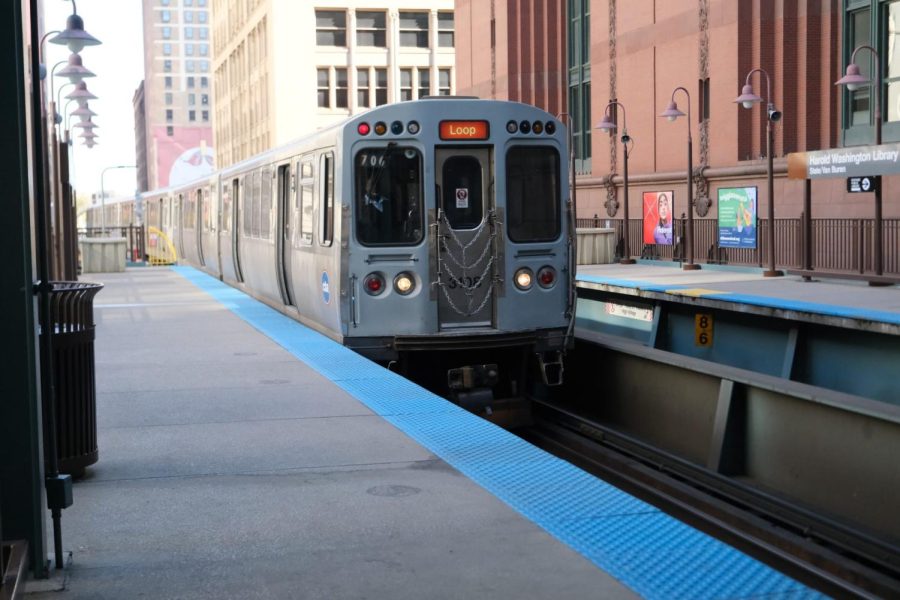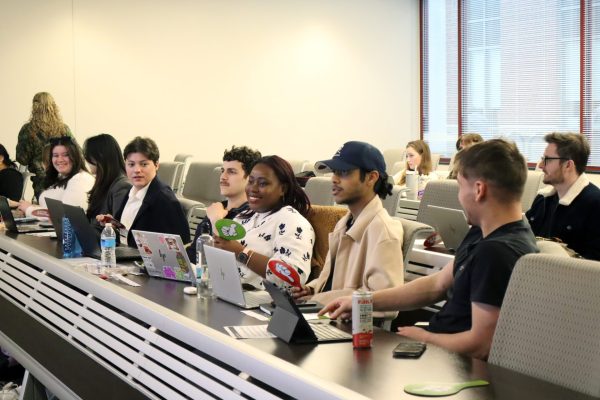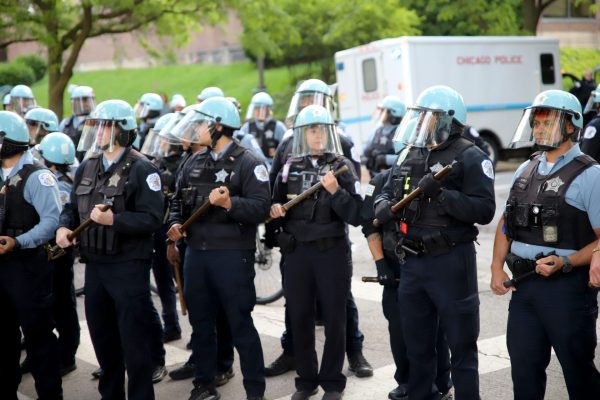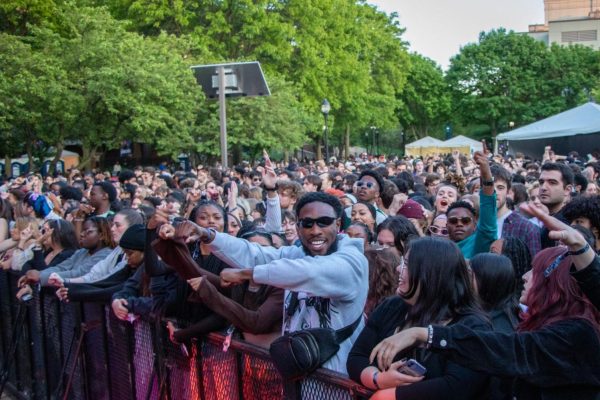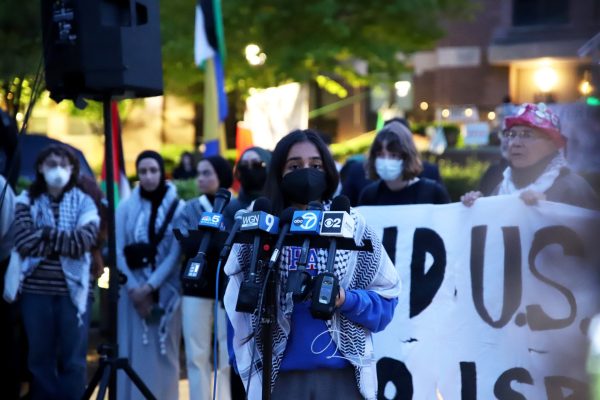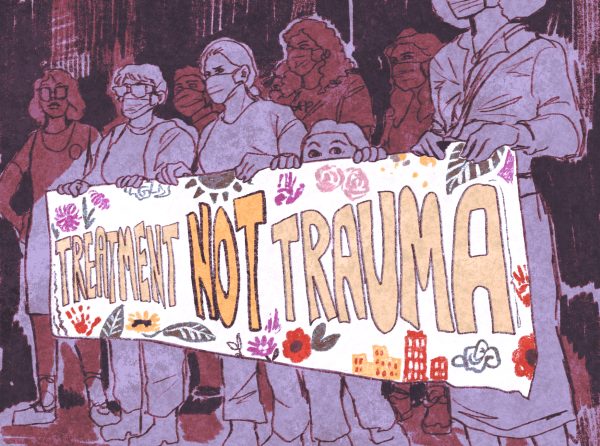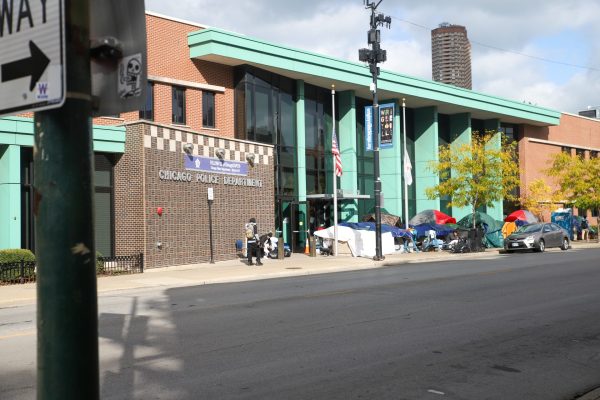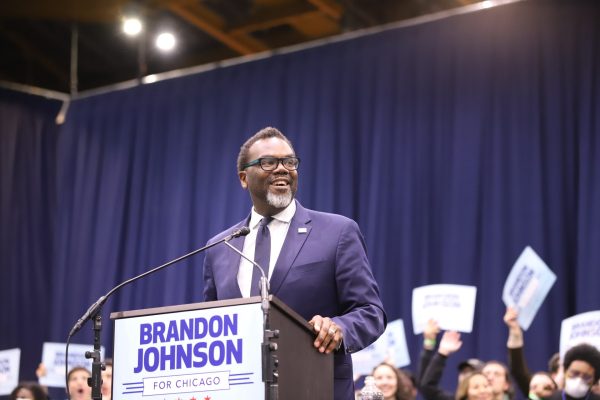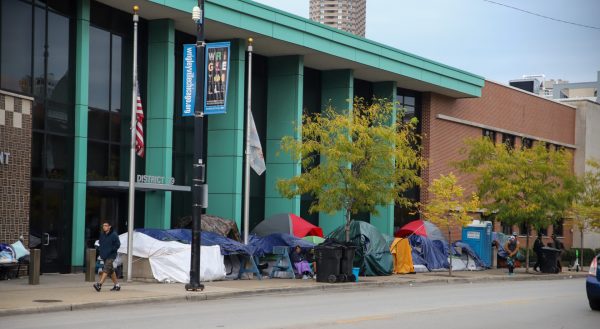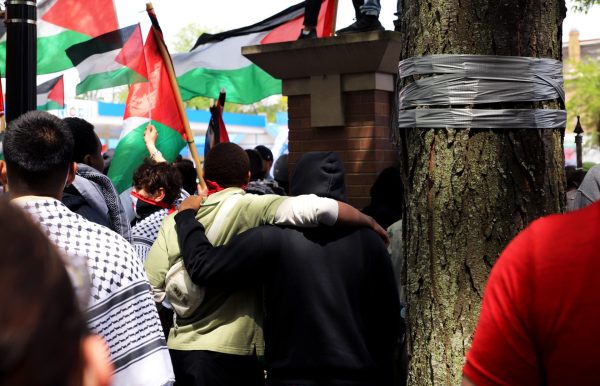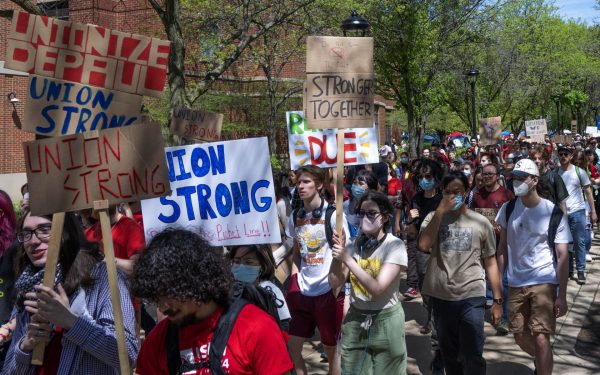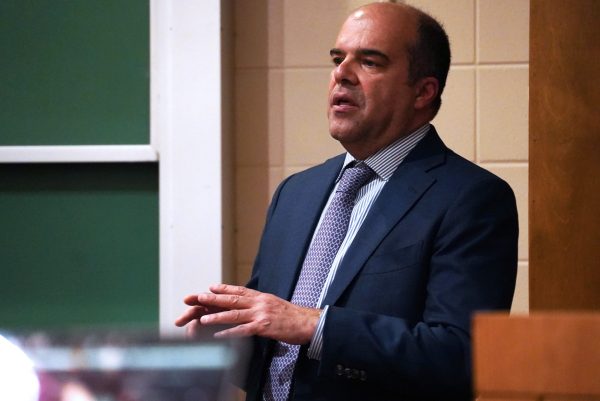DePaul students, faculty implement lenient attendance policies due to CTA wait times
Student attendance rates are being affected by unpredictable CTA wait times.
Sometimes DePaul senior Nathalie Hoste feels like she can leave her house with plenty of time to get to campus, but that extra time can often be taken up by the frequent issues with Chicago’s transit systems. Whether it’s ghost trains or buses, delays or traffic, many DePaul students have noticed an increase in difficulty getting to school on time.
Hoste relays her experience that many others can relate to: walking into class late, shuffling quickly to your seat, and hoping no one says anything. If anyone does, the only thing to respond with would be: “The CTA was running late, I’m so sorry!”
This is a narrative many of us know all too well. With 90% of DePaul students living off campus, students often rely on public transit to get from their houses to class.
Students may leave their houses with time to spare, and the train breaks down, or their Uber hits unforeseen traffic due to new road work. That spare time is now taken up, and a late arrival becomes inevitable.
Since the pandemic, CTA riders have noticed that there is a shortage of trains available, as well as the phenomenon of ghost trains and buses, according to Block Club Chicago. Often, the train or bus is delayed significantly, which highly impacts the commute times for students living off campus.
Many college students in Chicago can relate to the frustration of these frequent delays. Hoste has noticed a significant change in the buses this quarter.
“I have noticed a lot of ghost trains and even ghost bus issues,” Hoste said. “Especially with the 73 bus. It NEVER shows up, even though the app says it is. It’s frustrating because sometimes it’s the only bus I can take to the Metra, and I have to walk 30 minutes or go all the way downtown because the bus never shows up.”
DePaul junior Olivia Berry shares a similar struggle.
“I know it was bad since school started in September,” Berry said. “So this quarter hasn’t been that much worse than it usually is. Sometimes it’s on time, sometimes it comes every seven to 10 minutes, and sometimes it doesn’t come for like 25 minutes. I’ve learned to get used to that, unfortunately.”
In situations such as these, should professors be more lenient with attendance and have a grace period, or is it up to the student to plan their time accordingly around the chaotic public transit systems?
DePaul Professor Joanna Deszcz has noticed the train being a frequent reason for her student’s late arrival.
“Students were like ‘my train didn’t show up,’ or ‘my train is late,’” Deszcz said. “I would get emails right at the start of class and I didn’t see them until late, or even earlier on, students would be like ‘yeah, my train’s not here.’ They would walk in late, and sometimes it was just one or two students, and other times it would be a handful, like seven or eight of them would walk in, more or less at the same time once the train arrived.”
Ultimately, she understands this happens, and relates to the matter herself as a fellow commuter.
“I haven’t really changed my policy in any way,” Deszcz said. “I prefer students to come in on time, but I understand that sometimes people get delayed, and the train has been an issue in the past. Traffic is an issue for students that commute, and sometimes they get stuck. I commute by myself, so I totally get that.”
When asked if her policy has shifted since the CTA got worse, she shared with a smile that she has always understood the struggle of commuting to campus, and does not hold it against her students.
“I haven’t really changed my policy, but I was never really super strict with that. I figure that you’re all college students and you’re all adults, and you’re paying for this class. If you don’t show up, you’re kinda missing out,” Deszczs said..
Some professors take similar approaches to Deszcz. Berry said many of her professors have lenient attendance policies because of the CTA.
“None of my teachers have docked for attendance at DePaul,” Berry said. “I think I lucked out a bit there. All of them said at the beginning of this quarter that the trains have been bad, and they’re not going to get mad if we’re a bit late.”
But this is not always the case.
“I once had a professor dock my points because I was five minutes late. My bus had to stop on a bridge downtown because of CPS protests, which was out of my control. I had emailed this professor on my way there, yet somehow it was still ‘my fault because I didn’t plan ahead,’” Hoste says.
Hoste says that some professors have given her the benefit of the doubt, but this doesn’t always happen. Along with Hoste, many students at DePaul appreciate the understanding of professors who do provide leniency.
“Generally, if I let them know, they’re understanding enough, but some professors in the university don’t take transit times and delays into account. It’s honestly almost infuriating because no one ever knows what may happen on the road,” Hoste said.


